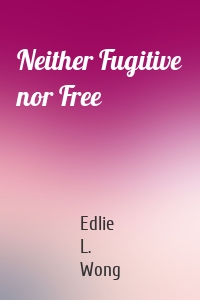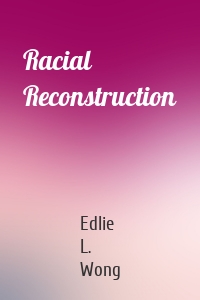Edlie L. Wong
2 кн.
Neither Fugitive nor Free
Neither Fugitive nor Free draws on the freedom suit as recorded in the press and court documents to offer a critically and historically engaged understanding of the freedom celebrated in the literary and cultural histories of transatlantic abolitionism. Freedom suits involved those enslaved valets, nurses, and maids who accompanied slaveholders onto free soil. Once brought into a free jurisdiction, these attendants became informally free, even if they were taken back to a slave...
| Автор | Edlie L. Wong |
Racial Reconstruction
The end of slavery and the Atlantic slave trade triggered wide-scale labor shortages across the U.S. and Caribbean. Planters looked to China as a source for labor replenishment, importing indentured laborers in what became known as “coolieism.” From heated Senate floor debates to Supreme Court test cases brought by Chinese activists, public anxieties over major shifts in the U.S. industrial landscape and class relations became displaced onto the figure of the Chinese labor...
| Автор | Edlie L. Wong |



